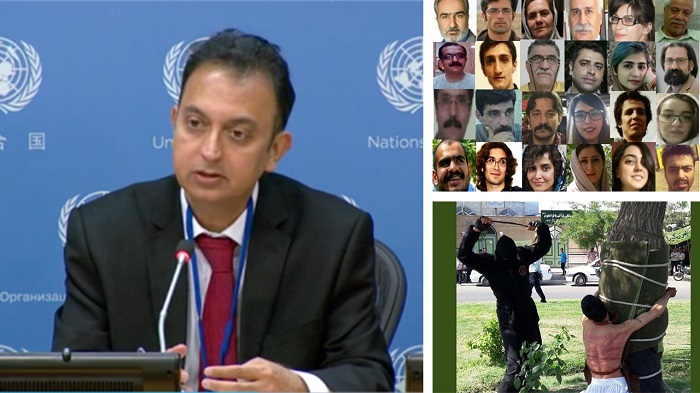
(PMOI / MEK Iran) and (NCRI): Javaid Rehman, the UN Special Rapporteur reports on the dire Human Rights situation in Iran.
Iran’s continuous human rights crimes were once again brought to the attention of the UN General Assembly’s human rights committee on Monday. The United Nations Special Rapporteur on Iran’s Human Rights, Javaid Rehman, raised alarm about the country’s growing human rights breaches.
Rehman mentioned the crisis of impunity
Rehman mentioned the crisis of impunity in Iran under the mullahs’ rule, as well as how human rights violators hold key positions in the regime. Mr. Rehman emphasized that Iran’s appalling human rights situation is “exacerbated by the fact that individuals accused of being involved in serious human rights violations remain in powerful positions, including at the highest levels of government.”
When Ebrahim Raisi was chosen as the regime’s president in June, the impunity crisis in Iran reached a pinnacle. Raisi was one of the key figures in the massacre of over 30,000 political detainees in 1988.
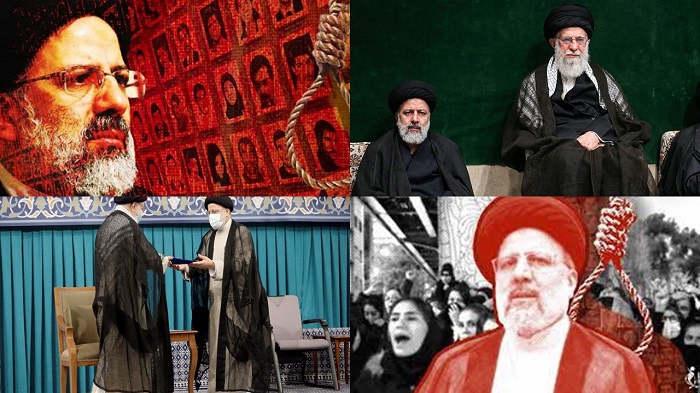
(PMOI / MEK Iran) and (NCRI): Raisi’s Inauguration as Iran’s President will Only Result in More Political Repression.
The crimes against humanity of murder
“Ebrahim Raisi has risen to the presidency instead of being investigated for the crimes against humanity of murder, enforced disappearance, and torture is a grim reminder that impunity reigns supreme in Iran,” Amnesty International Secretary General Agnès Callamard said when Raisi was confirmed as the regime’s next president.
“At least 31 prisoners have been hanged in various Iranian cities in the past 30 days alone,” the Iranian Resistance reported on October 24, “bringing the total number of executions since Ebrahim Raisi and Gholam Hossein Mohseni Ejei became President and Judiciary Chief, respectively, to at least 141.”
Mr. Rehman also mentioned the rising number of executions in Iran, calling it “an alarming rate,” and saying that “the lack of official statistics and transparency surrounding executions means that this practice escapes scrutiny, resulting in serious abuses preventing accountability.”
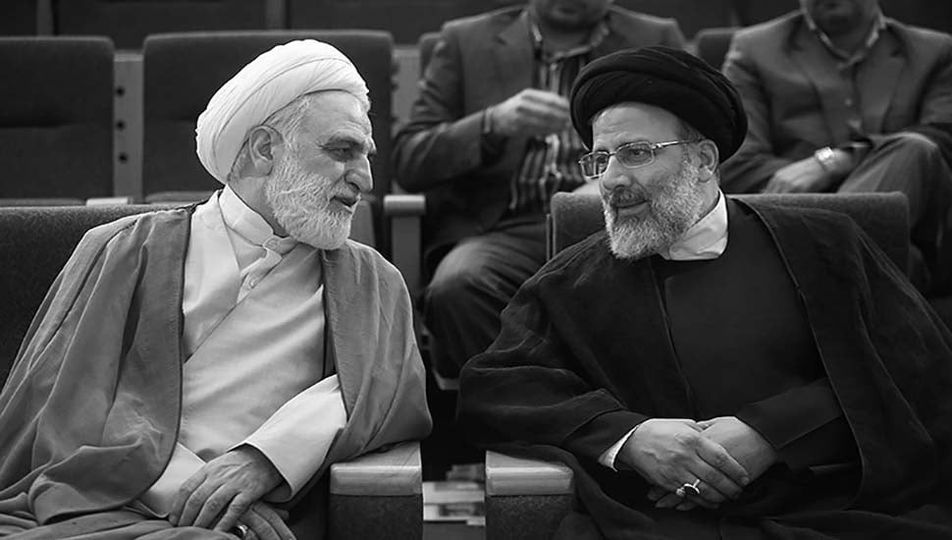
(PMOI / MEK Iran) and (NCRI): Khamenei completed the project to consolidate his regime, putting in place Ebrahim Raisi and Mohseni – Eje’i becoming President and Judiciary Chief.
The deteriorating human rights situation in Iran
Mr. Rehman’s concerns about the deteriorating human rights situation in Iran were echoed by several countries. The Canadian representative specifically criticized the massacre of political prisoners in 1988. “We also share concerns about reports that Iranian authorities are attempting to destroy evidence of past violations, such as mass, extrajudicial executions of political dissidents in 1988,” the Canadian Representative said, adding that “Canada condemns the mass murder of political prisoners in Iran in 1988.”
In the summer of 1988, the Iranian authorities executed approximately 30,000 political detainees. The majority of those killed were members and sympathizers of Iran’s main opposition party, the People’s Mojahedin of Iran (PMOI / MEK Iran). Despite international and domestic calls for accountability for the 1988 massacre, Iran’s supreme leader, Ali Khamenei, picked Raisi as his regime’s president.
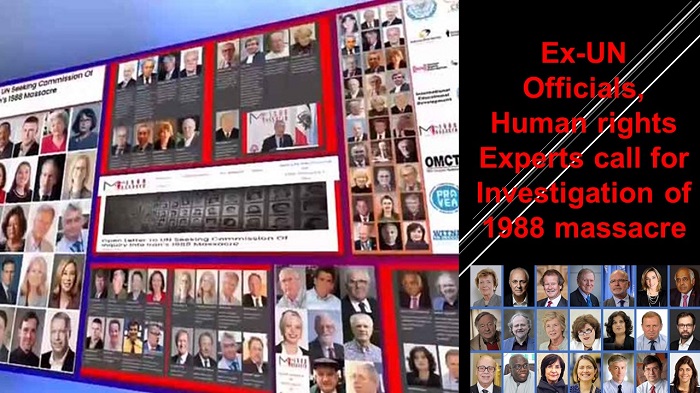
(NCRI) and (PMOI / MEK Iran): Ex-UN Officials, human rights experts call for investigation of the 1988 massacre.
The Iranian Resistance’s repeated calls for an investigation
The international community dismissed the Iranian Resistance’s repeated calls for an investigation into the ongoing massacre in 1988. Sadly, this inaction has continued to this day. Seven United Nations experts wrote in a letter published in December 2020 that the failure to act “had a devastating impact on the survivors and families as well as on the general situation of human rights in Iran, emboldening Iran to continue to conceal the fate of the victims and to maintain a strategy of deflection and denial that continues to this day.”
The brutal crackdown on demonstrators in November 2019, the high number of executions, and Raisi’s presidency are just a few examples of how the international community’s inaction has wreaked havoc in the last three decades.
The international community must hold Iran’s dictatorship accountable for crimes against humanity. Raisi and other top authorities implicated in the 1988 massacre, which many legal experts believe was a genocide, could be prosecuted by world powers.
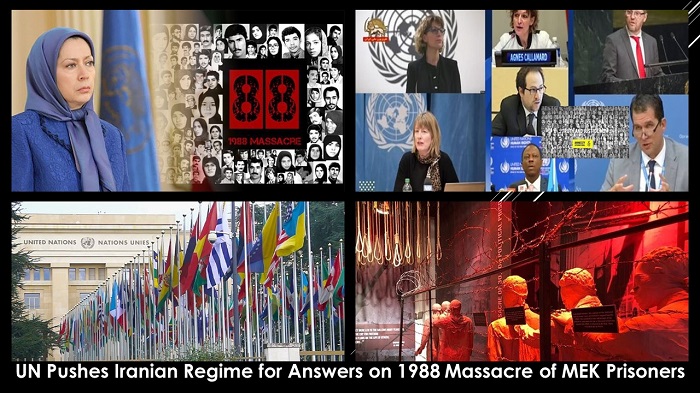
(NCRI) and (PMOI / MEK Iran): U.N. Urged to Investigate 1988 Massacre of Political Prisoners in Iran.
MEK Iran (follow us on Twitter and Facebook)
and follow Maryam Rajavi’s on her site 
and follow NCRI (Twitter & Facebook) and People’s Mojahedin Organization of Iran – MEK IRAN – YouTube
